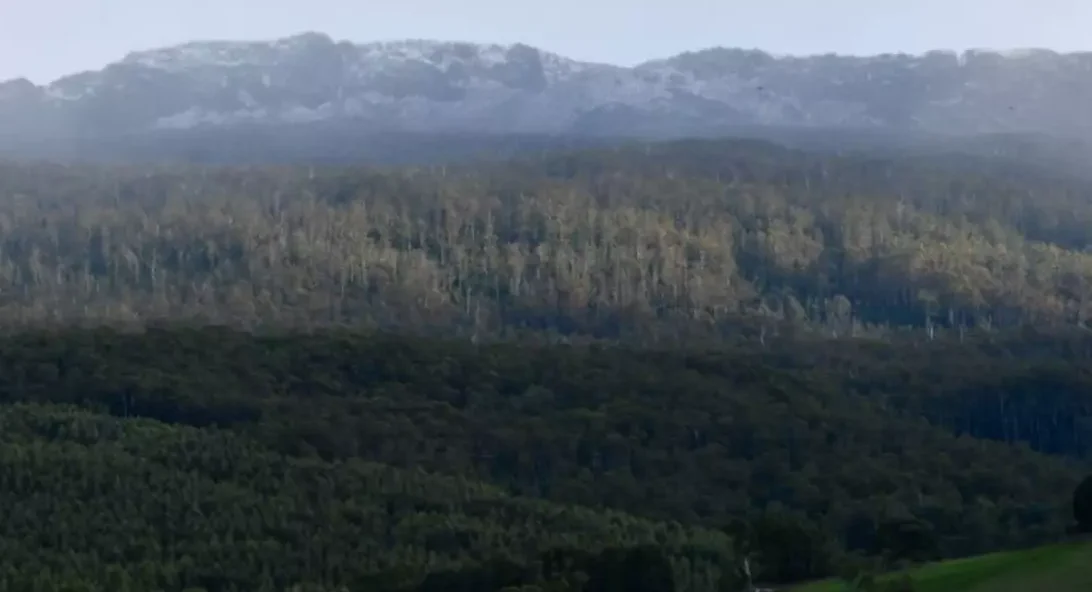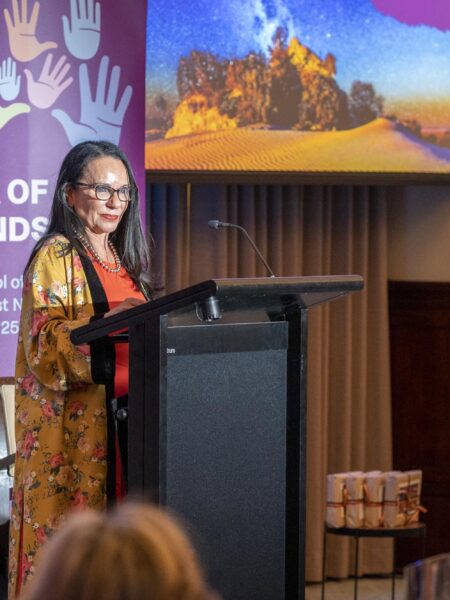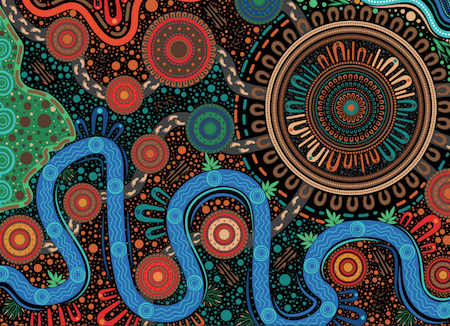Unfortunately, Aboriginal issues and priorities in Tasmania don’t get the attention they deserve outside of the Island. Yet the Palawa peoples from across Tasmania have been strong advocates and contributors to the cause of First Nations justice and rights, both there and on the mainland since colonisation began.
Saturday’s election in Tasmania is a timely opportunity to take a closer look at what the pressing issues and priorities are for the Palawa peoples of Tasmania.
The battle to protect Aboriginal Heritage
After the Liberals were returned to government in 2018, prominent Palawa leader Michael Mansell stated his frustration with the then Premier and Minister for Aboriginal Affairs, Will Hodgman, and his government’s poor track record on Aboriginal heritage protection:
Mr Hodgman’s most objectionable stance has been his indifference to [the] destruction of Aboriginal heritage
Hodgman has since retired from Parliament but his successor, Premier Gutwein, has not done much more. However, there is an opportunity for the next Tasmanian government to make significant progress in protecting Aboriginal heritage by creating a new National park in the ‘Great Western Tier’, former forestry land and giving management to the Palawa. As the Aboriginal Land Council of Tasmania’s Rebecca Digney has stated:
The government has promised UNESCO a national park and Aborigines real steps towards reconciliation. Here’s a tangible opportunity to honour both commitments…
Here’s a genuine opportunity to take unallocated Crown Land and return it back to Aboriginal ownership…
When Parliament changes the tenure of this land, there is a moral imperative to right past wrongs and return it to its rightful owners.
The consultation and consideration process continues and we know that forestry issues have always been fraught in Tasmania but this should be a priority for the next Government.
The Greens Party is the only party that has addressed this promise through its proposed policies. The Greens have stated that they:
support the Aboriginal Land Council of Tasmania’s formal land return claim for kooparoona niara/Great Western Tiers to become an Aboriginal-owned and managed national park under this tenure when presented to Parliament later in 2021.
The Greens also aim to initiate and support efforts to expand and integrate Aboriginal cultural burning in all aspects of fuel-reduction planning and delivery in Tasmania and include funding for staff with expertise in Aboriginal cool burning practices.
Combining heritage protection with truth-telling, it has been encouraging to see some active recognition of some of the travesties of colonisation in Tasmania with the renaming of one of the Island’s largest Aboriginal massacre sites with Suicide Bay being renamed to Taneneryouer. A number of the local Aboriginal Land Corporations were involved in the renaming and it comes in the context of other sites around Tasmania now being known by dual names – both English and First Nations. Although, even this seemingly positive step has not been without controversy with the Tasmanian Aboriginal Centre (TAC) arguing that the Government approach to using the Palawa language has been problematic and is undermining what should be a celebration of Aboriginal heritage and proper recognition of their status as First Peoples.
There have also been recent moves to have the Frontier Wars in Tasmania recognised more formally with Palawa peoples marching in the 2019 ANZAC Day procession in recognition of the resistance against dispossession since colonisation of the Island began in 1803. Aboriginal community groups and peak organisations like TAC are pushing for a memorial to be built and are pointing to the $2 million committed by the Federal Government for a Holocaust memorial and education centre in Hobart, but no such memorial supported for what has happened to Tasmanian Aboriginal peoples. Nala Mansell (TAC), said:
There are still no monuments acknowledging the Aboriginal resistance fighters of those who lost their lives and there are certainly no museums to educate people on the history and treatment of Aboriginal people and that’s a disgrace.
While the Liberal Government has expressed being ‘open to discussions’, no commitments have been made.
Disappointingly, the only mention of Tasmanian Aboriginal peoples in the Liberal Government’s proposed policies is in the way of maximising the potential for the Tasmanian tourism industry. Through this policy the Liberal Government aims to invest $750,000 over three years, “building the tourism potential of Tasmania’s Aboriginal Heritage” by investing in the wukalina walk. In other words, capitalising on the exploitation of Aboriginal Heritage. Of course, protecting heritage would be essential in the first place to make this ‘capitalisation’ of Aboriginal heritage work.
The Labor party has failed to address Aboriginal affairs all together in their election policies.
Closing the Gap
The annual Closing the Gap Report in February 2020, showed that Tasmania was only on track to meet one (1) of the seven (7) targets for Closing the Gap and was failing on child mortality and life expectancy targets. The Tasmanian Government, along with all the other Federal, State and Territory governments, is a signatory to the new National Agreement on Closing the Gap.
The new Agreement, negotiated with a coalition of Aboriginal and Torres Strait Islander peak and community controlled organisations, is a promising fresh start to the strategy that is meant to be working towards parity in life expectancy, health outcomes, employment, education, justice outcomes and other indicators and it is commendable that Tasmania has formally made its commitment. However, unless that commitment is demonstrated with real action and resources by the Government, the disparities will remain.
Tasmanian Aboriginals continue to be disproportionately represented in a range of areas.
In Tasmania, Aboriginal and Torres Strait Islander peoples make up 5% of the general population. Sadly they account for 16% of the prison population, making First Nations Tasmanians 3.5 times more likely to be imprisoned than their fellow non-Indigenous Tasmanians. Aboriginal Tasmanians also account for 8% of the total homeless population in the state with the rate of First Nations homelessness rising 22% between 2011 and 2016.
None of the major parties have provided any indication on how they intend to meet their commitments under the new National Agreement on Closing the Gap and Tasmanian Aboriginal Peoples lives continue to be impacted.
The lack of representation of Aboriginal and Torres Strait Islander peoples within the Tasmanian political parties also deprives First Nations Tasmanians of Voice in the decision making processes that have such significant impacts on their communities.
Treaty
Despite the momentum in other jurisdictions like Victoria, the Northern Territory and Queensland, Tasmania is yet to take any meaningful steps towards Treaty with the Tasmanian Palawa peoples.
Aboriginal Tasmanians continue to call on the government to negotiate a much-needed formal Treaty. In 2018, the Tasmanian Greens party developed a Respect For Tasmania’s First People policy that addressed the need for a formal Treaty. The Greens party pledged to consult with Tasmanian Aboriginal communities to develop an appropriate mechanism by which a formal Treaty between the State of Tasmania and our first people can be negotiated.
However, mention of these Treaty negotiations is not included in the Greens updated list of policies for this upcoming 2021 election.
Outside of this commitment, the Liberal and Labor parties have not provided any policy or commitment regarding Treaty or any stated commitment to the Uluru Statement’s calls for Voice, Treaty and Truth are superficial.
Tasmania may be the smallest state and its policies regarding Aboriginal Tasmanians are little appreciated outside of the Island, and it is an indictment on the major parties in Tasmania that their policies and election commitments are so silent on Aboriginal affairs.
Palawa man Rodney Gibbins, the former Tasmanian Office of Aboriginal Affairs Manager has said:
There is still an opportunity to have a voice in the constitution. There is still the opportunity to have a treaty commission. There is still an opportunity to have a truth in history. But these have to be done with Government support and at the moment we don’t have that.
It is clear that the major parties contesting the election in Tasmania this Saturday do not share an appreciation for this opportunity or any urgency to address the critical priorities raised by Tasmanian Aboriginal peoples. Sadly, it doesn’t leave much choice between the parties for Saturday’s election and for Tasmanians passionate about reconciliation, it will be a matter of which party can deliver on the bare minimum offered. Tasmania, and specifically the Palawa peoples of Tasmania deserve to have their voices heard and needs addressed. The elected government needs to do much better.
To read more about each party’s policies follow the links below.
Liberal Party
Labor Party
Tasmanian Greens




